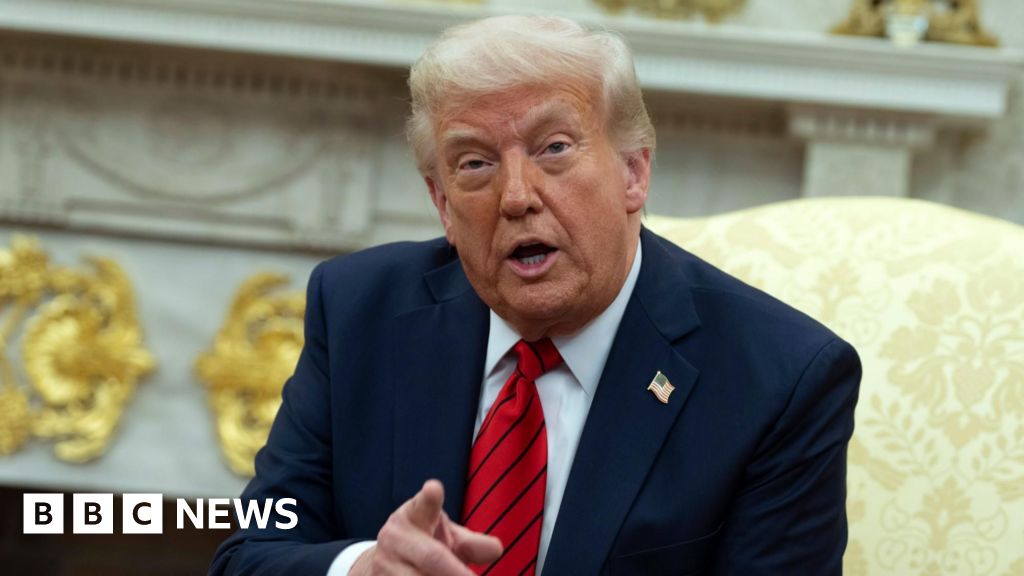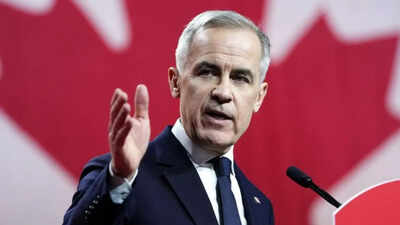Trump Faces Record Low Economic Approval Amid Rising Discontent

On April 15, 2025, U.S. President Donald Trump made a public appearance at the White House, where he presented the prestigious Commander-in-Chief trophy to the U.S. Navy Midshipmen football team from the United States Naval Academy. However, his administration is currently facing significant challenges as new economic data reveals that Trump's approval ratings are plummeting, particularly concerning his handling of the economy.
According to the latest CNBC All-America Economic Survey, Trump is experiencing the lowest economic approval numbers of his presidential tenure. The survey indicates a growing sentiment of dissatisfaction among Americans regarding his management of tariffs, inflation, and government spending. The optimism that initially accompanied Trump's reelection appears to have evaporated, with many citizens now forecasting a decline in the economya perspective not seen since 2023.
The survey, which sampled 1,000 Americans nationwide from April 9 to April 13 and carries a margin of error of +/-3.1%, revealed that only 44% of respondents approve of Trump's overall handling of the presidency, while a notable 51% disapprove. This slight improvement over the approval ratings he garnered when leaving office in 2020 is overshadowed by the alarming statistic that shows only 43% of those surveyed approve of his economic policies, with a staggering 55% disapprovala first in any CNBC poll conducted during his presidency.
While Trump's core Republican base continues to support him, the survey highlights a troubling trend among key demographics. For instance, Democrats displayed an astonishing -90 net economic approval rating30 points more negative than the average during his first term. Independents also expressed growing discontent, showing a 23-point decline in approval ratings compared to previous metrics. Even blue-collar workers, previously deemed a crucial support group for Trump during his election victory, have seen a 14-point rise in disapproval regarding his economic management.
Jay Campbell, a partner at Hart Associates, a Democratic polling firm, emphasized the president's promise to improve the economy, stating, "Donald Trump was reelected specifically to improve the economy, and so far, people are not liking what they're seeing." This sentiment resonates strongly with the survey findings, which indicate that nearly 49% of the public believes the economy will worsen in the coming year, representing the most pessimistic outlook since 2023.
The survey results also indicate a stark partisan divide in perceptions of economic progress. While a substantial 76% of Republicans believe the economy will improve, a staggering 83% of Democrats and 54% of independents predict economic decline. Among those who hold a positive view of Trump's economic policies, 27% believe any improvements will take at least a year to materialize. In contrast, 40% of respondents with a negative outlook assert that Trump's policies are currently detrimental to the economy.
Micah Roberts, managing partner at Public Opinion Strategies, the Republican polling firm associated with the survey, noted the increasingly turbulent landscape of American sentiment regarding future economic prospects. He stated, "We're in a turbulent, kind of maelstrom of change when it comes to how people feel about what's going to happen next." This volatility is largely driven by negative partisan reactions, which are contributing significantly to the widely reported discontent.
Amidst the broader dissatisfaction, specific issues such as tariffs have surfaced as pivotal points of contention. The data show that Americans disapprove of across-the-board tariffs by a 49 to 35 margin, with majorities believing these tariffs have adverse effects on American workers, inflation, and the economy at large. Democrats express overwhelming disapproval of tariffs by an 83-point margin, and independents also show a negative response, disapproving by 26 points. Surprisingly, while Republicans approve of tariffs by a 59-point margin, this is significantly lower than their previous 79% net approval of Trump.
Moreover, the survey indicates that many Americans view trading partners like Canada, Mexico, the EU, and Japan more as economic opportunities rather than threats. In fact, the perception of these countries has improved since the last similar survey conducted during Trump's first term. Conversely, public sentiment towards China has shifted negatively, with a 44% to 35% margin considering it a threat, marking a significant decline from earlier assessments in 2019.
Trump's most concerning statistics emerge from his handling of inflation, which garners a disapproval rating of 60% against 37% approval. This reflects strong disapproval from both Democrats and independents, while Republicans show the lowest net positive approval (58%) on inflation compared to any other issue addressed in the survey. Alarmingly, 57% of the public believes the nation is either on the verge of a recession or already experiencing one, an increase from 40% in March 2024. Within this group, 12% assert that the recession has already begun.
Public opinion also reflects disapproval of Trumps management of federal government spending (45% disapproval to 51% approval) and foreign policy (42% disapproval to 53% approval). In contrast, Trump received his highest approval ratings for his handling of immigration, where he is viewed positively by a margin of 53% to 41% on Southern border issues, and sees a slight majority of support from independents regarding deportations of illegal immigrants.
As public perception turns more negative towards the stock market, a significant 53% believe its a poor time to invest, versus only 38% who think otherwise. This represents a stark contrast to the stock market optimism that welcomed the presidents election. The recent survey illustrates the sharpest swing towards pessimism in the history of these surveys, following a period of notable optimism just months prior.
Despite Trump's declining approval ratings, the anticipated political fallout does not seem to translate into immediate gains for Democrats. When asked about congressional preferences, 48% of respondents support Democratic control compared to 46% for Republicans, showing no significant change from the March 2022 survey.
As the political landscape continues to evolve, the White House is gearing up for the upcoming CNBC Pro LIVE event scheduled for June 12 at the New York Stock Exchange. This exclusive event aims to provide insights into navigating the uncertain market conditions, featuring interactive sessions with financial experts and networking opportunities for attendees.


























